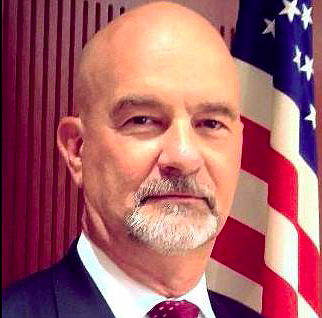Moratorium on growth: Not an option
POST FALLS — Extreme growth in Kootenai County, especially on the prairie, is at the forefront of many citizens’ minds.
Some are asking why there isn't a moratorium on new construction projects.
Post Falls Mayor Ron Jacobson and City Attorney Warren Wilson can answer that question fairly simply, but with an asterisk: It's illegal.
Now, about that asterisk.
“A moratorium requires an imminent peril, that there is a threat that something bad is going to happen,” Wilson said in a recent interview with The Press. “It’s not going to happen a year from now; it’s going to happen soon.”
“Say whatever you want about growth,” he added. “But it’s hard to say there’s an imminent peril.”
The City Council has said, for example, that imminent peril would be a situation where “capacity at a wastewater treatment plant has been exceeded.” In the eyes of the council, there is no such threat on the horizon for citizens of Post Falls, though some public opinion differs.
At the City Council meeting March 2, a presentation was given by Wilson addressing the question of a growth moratorium.
It was done in response to public insistence that the council examine a moratorium instituted about 40 years ago by Boulder City, Nev.
The Boulder City initiative limits the amount of building permits to “100 allotments per year,” Wilson said. That can mean single-family homes, multi-family homes or hotels, council members said.
Wilson elaborated to say Boulder City was, at the time, in the process of building a dam, and the city itself was constructed specifically to house those working on the dam.
“When they were building the dam they didn’t want this rampant growth, so the city bought 240 acres,” Jacobson said. Because the city owned the property in question, they were able to parcel it out in chunks.
Noting the fact that building projects in Post Falls are done on privately owned land, Wilson said “one of the many distinctions between Idaho and Boulder City is that, number one, we don’t own any of the land that is being developed. And number two, there is a statute in Nevada that there isn’t in Idaho that authorizes that type of limitation.”
A citizen had requested a growth moratorium be placed on the ballot for public vote this fall.
City Council members said they took the request seriously.
“We are obligated under state law to provide an analysis of the substance of what you’re trying to do,” Wilson said. He stated the City Council provided a “copious response” on the issue.
Council members thoroughly examined the Boulder City statute, with Councilman Alan Wolfe reaching out directly to Boulder City authorities for answers and explanations.
The examination resulted in a 111-page document presented by the City Council.
“There are legal issues with trying to adopt something like that in Idaho,” Wilson said.
About three years ago, council members said, the Idaho Legislature changed the laws. Land-use matters cannot be handled via initiative, Wilson explained. “You just can’t do it,” he said.
New building projects that come before the City Council are brought by individual property owners when they're ready to develop.
The council emphasized that private property owners have many rights to do as they wish with their property.
On that note, Jacobson said, “a lot of growth and development that you’re seeing is on property that was annexed years ago.”
The petitioner attempting to bring a growth moratorium to a public vote later decided not to move forward, council members said.
“We tried really hard to give them as good an explanation as to why this doesn’t work as we could,” Wilson said.
Public participation is strongly encouraged by the City Council, specifically when city codes are being looked at for change.
“We’re constantly working on updates to the city code,” Wilson said. “We do master plan updates constantly.”
Wilson said it's during these ongoing public discussions that change can happen.
“At the public hearings - one of the reasons we ask for public input is to give us information about whether or not the application meets the approval criteria,” Wilson said.
There are matters council members may not be aware of that someone in the public realm might know, he said.
“That’s part of what we’re looking for,” Wilson said. “We send out notices to the public, to the paper, and these are posted on the (city of Post Falls) website, that this is what’s coming up and these are what the standards are.”
The Post Falls City Council meets on the first and third Tuesday of every month at 6 p.m. Meetings are live-streamed on the City of Post Falls YouTube channel as well.
On the third Tuesday of each month there is also a 5 p.m. workshop.
All of these meetings are open for public involvement, and Council meeting agendas are published in advance as well on the city website.
Info: www.postfallsidaho.org

